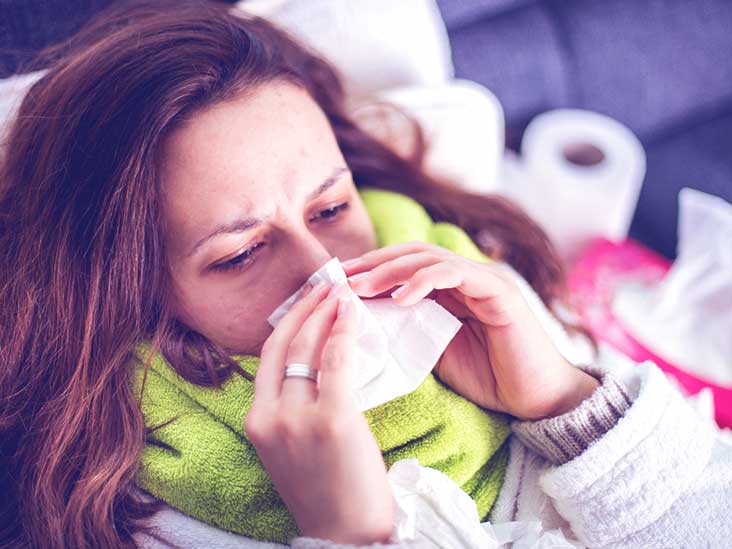A head cold, also known as a viral upper respiratory infection, is a common ailment that affects millions of people each year. It is caused by a viral infection that affects the nasal passages, sinuses, and throat.
Symptoms of Head Cold
Symptoms can include nasal congestion, runny nose, sore throat, cough, and headache. In most cases, a head cold is mild and will resolve on its own within a week or two. However, in some cases, the symptoms can be severe and may require treatment.
The symptoms of a head cold can vary from person to person, but the most common symptoms include:
Nasal Congestion: This is the most common symptom of a head cold. Nasal congestion occurs when the nasal passages become inflamed and swollen, making it difficult to breathe through the nose. This can be accompanied by a runny nose, as the body produces more mucus to try and flush out the virus.
Sore Throat: A sore throat is another common symptom of a head cold. This can be caused by the virus or by the increased mucus production. The sore throat may be accompanied by a scratchy or burning sensation.
Cough: A cough is a common symptom of a head cold. The cough is usually dry and non-productive, meaning that it does not produce much mucus. It is usually caused by the virus or the increased mucus production.
Headache: A headache is a common symptom of a head cold. The headache can be caused by the virus or by the inflammation and swelling of the nasal passages.
Fatigue: Fatigue is a common symptom of a head cold. The fatigue can be caused by the virus or by the body’s attempt to fight off the infection.
Treatment for Head Cold
In most cases, a head cold will resolve on its own within a week or two. However, there are several things that you can do to alleviate the symptoms and make yourself more comfortable.
Rest: Rest is the most important thing that you can do to treat a head cold. When you are sick, your body needs more energy to fight off the virus. By getting plenty of rest, you are giving your body the energy it needs to fight off the infection.
Drink Plenty of Fluids: Drinking plenty of fluids is important when you have a head cold. Fluids can help to thin out the mucus and make it easier to cough up. They can also help to keep you hydrated.
Use a Humidifier: A humidifier can help to keep the air in your home moist. This can help to alleviate the symptoms of a head cold, such as nasal congestion and a dry throat.
Over-the-Counter Medications: There are several over-the-counter medications that can help to alleviate the symptoms of a head cold. These include decongestants, antihistamines, and pain relievers. Be sure to follow the instructions on the label and talk to your doctor before taking any medication, especially if you have any underlying medical conditions.
Antibiotics: Antibiotics are not effective in treating a head cold as it is a viral infection. They are only prescribed if the cold is caused by a bacterial infection.
Home Remedies: There are several home remedies that can help to alleviate the symptoms of a head cold. These include:
Gargling with salt water: This can help to soothe a sore throat and reduce inflammation.
Steam inhalation: This can help to relieve nasal congestion and make it easier to breathe.
Hot drinks: Hot drinks, such as tea or chicken broth, can help to soothe a sore throat and reduce inflammation.

 Home
Home Health
Health Diet & Nutrition
Diet & Nutrition Living Well
Living Well More
More












